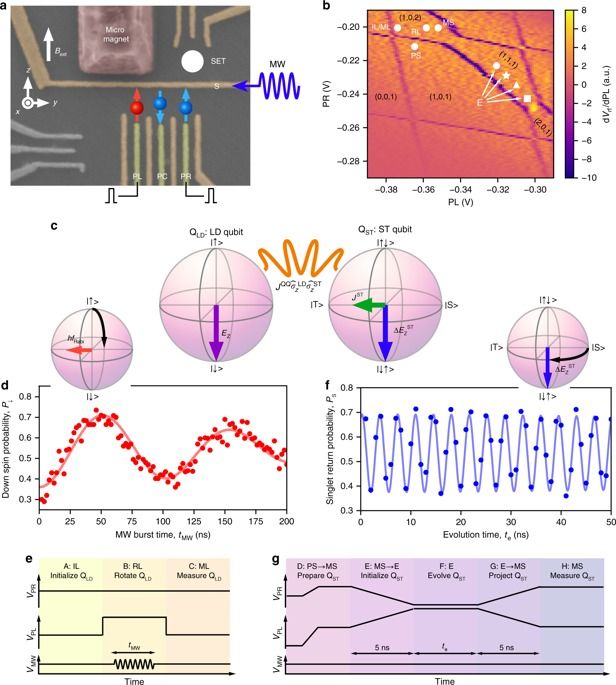“Open Article” smile Spin-based quantum computers have the potential to tackle difficult mathematical problems that cannot be solved using ordinary computers, but many problems remain in making these machines scalable. Now, an international group of researchers led by the RIKEN Center for Emergent Matter Science have crafted a new architecture for quantum computing. By constructing a hybrid device made from two different types of qubit—the fundamental computing element of quantum computers –they have created a device that can be quickly initialized and read out, and that simultaneously maintains high control fidelity.
Single-spin qubits in semiconductor quantum dots hold promise for universal quantum computation with demonstrations of a high single-qubit gate fidelity above 99.9% and two-qubit gates in conjunction with a long coherence time. However, initialization and readout of a qubit is orders of magnitude slower than control, which is detrimental for implementing measurement-based protocols such as error-correcting codes. In contrast, a singlet-triplet qubit, encoded in a two-spin subspace, has the virtue of fast readout with high fidelity. Here, we present a hybrid system which benefits from the different advantages of these two distinct spin-qubit implementations. A quantum interface between the two codes is realized by electrically tunable inter-qubit exchange coupling. We demonstrate a controlled-phase gate that acts within 5.5 ns, much faster than the measured dephasing time of 211 ns. The presented hybrid architecture will be useful to settle remaining key problems with building scalable spin-based quantum computers.
